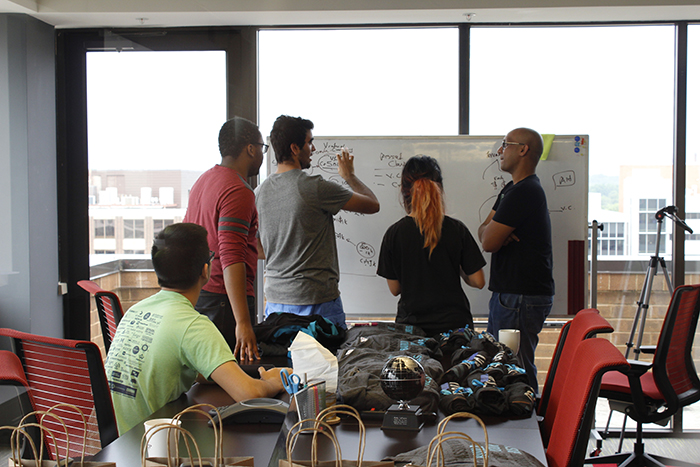
Ann Arbor, Michigan’s Desai Accelerator, a joint venture between the University of Michigan’s Ross School of Business and the College of Engineering, welcomes its Summer 2018 cohort this week.
The six teams are were announced along with the debut of an expanded intern program to support the startups in their development.
The Desai Accelerator is managed by the Ross School’s Samuel Zell & Robert H. Lurie Institute for Entrepreneurial Studies and the College of Engineering’s Center for Entrepreneurship. Its purpose is to nurture ventures as they reach the critical phase between early-stage development and the point at which they seek external investors.
“There are exceptional resources to nurture startups here in southeast Michigan, from the world-class talent at the University of Michigan to the thriving, growing industries and global perspective that characterize the community,” said Angela Kujava, managing director of the Desai Accelerator. “We are proud to be a part of this ecosystem.”
The accelerator provides each company with a $25,000 investment, support from mentors and access to University of Michigan interns, as well as office space in downtown Ann Arbor.
BECOME A SPONSOR
Join us in championing the narrative of success, resilience, and ingenuity that defines Nebraska’s startup community. Learn more »
The companies will showcase their progress at Desai’s Demo Day event on September 12, where they will pitch their businesses to active investors.
- Arbor Automation, an automated software service that improves manufacturing prototype hardware. Today, manufacturers spend countless hours reprogramming machine tools for new production runs. Arbor Automation reduces this turnover time to seconds by eliminating the need for manual programming, which decreases production costs, increases product throughput and prepares manufacturers for a future of fully automated machining.
- Canopy, a web application that helps families and individuals talk about and make end-of-life healthcare decisions and share those decisions with others through an advanced care directive. By supporting both individuals and healthcare systems through advance care planning services and legal documentation, Canopy provides value across the healthcare ecosystem.
- Cheddur, a social network for the average person to find, learn about and get started with digital currencies and services in a fun and easy way. It’s also an advertising platform for coin and service developers to promote their projects, get discovered and build communities of users and investors.
- Jottful, a tech-enabled service that creates and maintains professional, affordable and hassle-free websites for small businesses. Jottful makes it possible for every small business to be found and to tell its story online.
- Mi Padrino, an online application that makes the planning and paying for Hispanic events, such as quinceañeras, weddings and baptisms, easy and effective. Mi Padrino offers planning resources, personal event pages and crowdfunding features tailored to the Hispanic community—a population that has been underserved until now.
- Movatic, a software platform that makes mobility hardware shareable. On the Movatic app, users can find, rent and pay for different mobility services—and the app’s back-end allows for these services to be managed, pricing to be set, hardware to be maintained and customers to be supported.

The six companies were chosen from a competitive, diverse pool of technology-focused applicants from six countries and ten different states.
About 33 percent had female founders, 45 percent were from states other than Michigan, and 60 percent had founders from outside of the University of Michigan.
“Our applicant pool is more competitive each cycle—it’s a testament to the quality of the experience our accelerator offers, as well as the strong entrepreneurial spirit that infuses the region,” said Kujava.
This summer’s program will also provide expand intern and mentor support to the accepted entrepreneurs over the 16 weeks of the program.
Entrepreneurs will now be able to tap a staff of 10 interns, up from six in previous cohorts, who execute tech, business and design projects during the course of the accelerator program.
Entrepreneurs will also benefit from the expertise of consistent meetings with lead mentors, and additional support from industry and skills experts that will help guide the entrepreneurs through developing their businesses.
“We want our startups to drive relentlessly toward their first $1 million — which may be revenue, funding, or both,” said Kujava. “Our goal is to offer the right combination of mentorship, resources and programming to help propel our entrepreneurs to not only hit but exceed their milestones.”
––
Applications for the 2019 cohort will open in December. Visit desaiaccelerator.umich.edu for more information.



